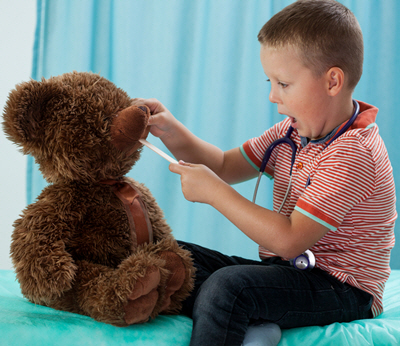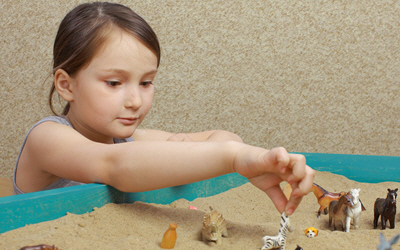“Toys are children’s words, and play is their language.” ~Garry Landreth.
 Repeating, play is a child’s language!
Repeating, play is a child’s language!
Garry is right about the connection between play and a child’s language. With their limited capacity to put a name to emotions and feelings, it is sometimes difficult to understand children. Events and feelings are hard for them to express with words.
Play Therapy provides a unique and impactful way for children to take the lead and express themselves through play. It provides the child with a free and safe space for expression. The therapy might involve various types of play, such as sand tray, puppets, art, playing doctor, playing with Barbies, Legos, etc.
 There is no limit to a child’s creativity.
There is no limit to a child’s creativity.
All forms of toys help children create their world and process what they are experiencing in their own world. Play therapy can help children with respecting boundaries, developing healthy coping skills, aggression, self-regulation, and processing trauma.
Allowing children this freedom, while providing a safe space for expression, helps them make the changes they need.
 Counseling through play therapy
Counseling through play therapy
The counselor’s role in play therapy is to be present and, when invited, engage in play with the child. This allows the counselor to both focus on the child and to provide the child with his or her undivided attention for the duration of the session.
Another of the counselor’s roles is to be present with the parents and caregivers. We know that your child is extremely important to you. Otherwise, you wouldn’t have brought him or her to see us.
Parents, you are a crucial part in the process of play therapy. Periodically, the counselor will meet with you. This helps keep you informed about your child and the progress being made. Sometimes, you may be asked to implement certain activities and routines at home. This helps with your child’s therapeutic process.
However, any activities directly involving parents will be discussed and thoroughly covered during parent meetings. We value you as the child’s caregiver. Play therapy wouldn’t be impactful without devoted involvement of the parents.
In short, we want you, the parents, to be included in the process. Your child is important to us, and we don’t take it lightly that you have chosen to trust us with them.
Let us connect with your child.
We help children in distress.
Call us at (662) 202-7332 to connect.

